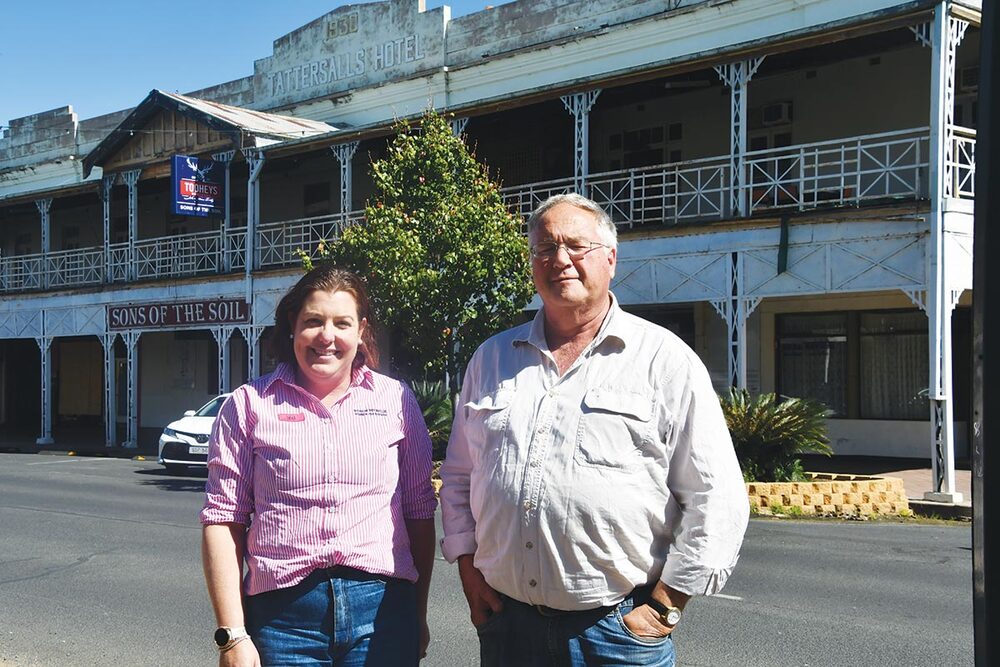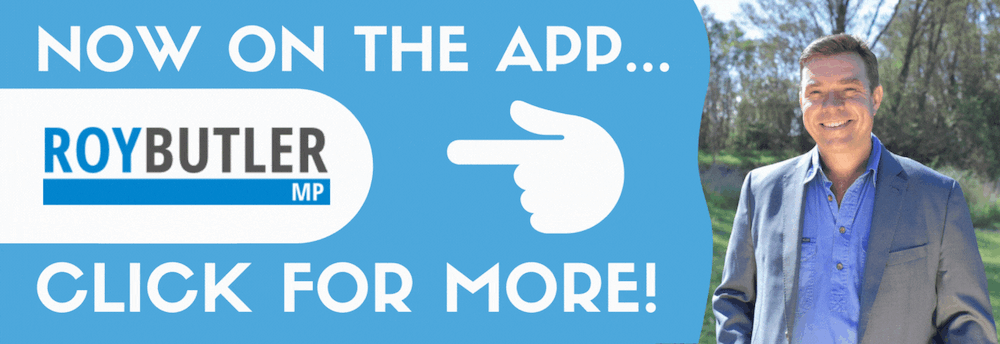Making the most of a minority government
Coonamble Times
05 May 2023, 4:48 AM
 Member for Barwon Roy Butler accompanied Water Minister Rose Jackson on her visit to Walgett on Friday 29 April.
Member for Barwon Roy Butler accompanied Water Minister Rose Jackson on her visit to Walgett on Friday 29 April.AS the dust settles on the 2023 NSW State Election we can now take stock of how the new look government will operate going forward and what role Barwon MP Roy Butler might play.
The key takeaway from the election is that crossbench members of parliament (MPs) such as Roy Butler will now hold more influence in this government than the last due to the Labor Party forming a minority government.
And with fewer sitting Ministers who are familiar with regional areas, Mr Butler's team believe this new government are more likely to consult with and listen to regional Independent MPs.
How does a minority government work?
A minority government is when the party in power does not hold enough seats in parliament to be in the majority.
This means that for any legislation to pass, they require votes from outside their party - which is where the crossbench comes in.
In this new government the crossbench is made up of twelve MPs, including three Greens members and nine independents.
While this generally means any legislation will not be passed without alteration from crossbenchers and therefore slowing the process down, it does mean that multiple perspectives are involved in the process and theoretically a more balanced piece of legislation may be passed.
The last time NSW had a minority government was back in 1991 when Nick Greiner and his Liberal party held forty-six seats.
One of the independents at the time, Tony Windsor, says that the minority government helped create better legislation.
"Rather than be defeated on the floor of the house, they sussed out what the various Independents thought of that particular issue, and modified it before it even got into the parliament," he told the ABC.
"It makes people think 'why am I doing this?' because they have to explain it to Independents and just that in itself improves the parliament."
"This can make a big difference because even in minority, governments can have big chests and think they're pretty puffed up."

ABOVE: Barwon Electorate Officer Melissa Manchee and Senior Policy Adviser John Clements were in Coonamble last week.
No better time for Barwon
As for Coonamble's local member, Roy Butler, the new minority government places him in an influential position as a crossbencher.
Butler's team see it as a good opportunity to garner much-needed support for regional and rural NSW.
"We like it," said Roy Butler's senior policy advisor John Clements.
"They're young, enthusiastic and bright, they're ready to make mistakes and do good things."
"What's even better is that they are two short."
John believes that the time is now for Roy Butler to put forward the legislation that they want realised.
"There is no better time than now for us to put stuff in front of them," said Mr Clements.
"About two years ago we thought that Minns would be the next Premier, so we've had a pretty continual dialogue with him."
"And he's been very gracious with his time, we've met with him four times so far."
Roy’s top three
Three key priorities lie at the top of Roy's list, targeting issues experienced throughout western NSW.
Firstly, is introducing legislated service delivery standards to address resourcing issues in healthcare, education, police and other key government services.
The legislation also would foster in a culture of accountability.
"They will have to say what resourcing they require to deliver 'x' service," said John Clements.
“We want them to tell us why they can’t deliver a service in their report.”
Next on the list will be a review of the Young Offenders Act, first introduced in 1997.
By reviewing the act, John Clements believes it will foster more accountability for juvenile offenders, keep them out of juvenile detention centres and reduce re-offending.
“We want it re-drafted, we need more accountability for young offenders,” said Mr Clements.
The review will look into addressing the consequences handed to juveniles and their rights in court settings.
Third on the list will be changes to address “widespread rorting” using Biodiversity Conservation Offsets.
A report into the scheme in November 2022, found that “a perception of many stakeholders that the scheme is profiting a few while failing to deliver meaningful protection for biodiversity.”
“Rather than being a last resort for offsetting unavoidable impacts of development ... the scheme makes it easy for developers to meet their offset obligations through making a cash payment, with no guarantee that like-for-like offsets will ever be found,” stated the report.
Roy Butler’s team say they expect many opportunities ahead for them to have an impact under the new government.



